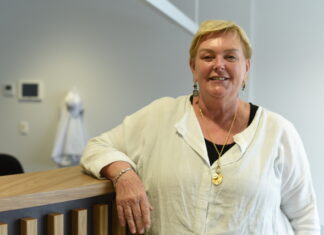Des Noll, Wattle Range Mayor
I REFER to a recent letter to the editor that was published in the Border Watch on Tuesday, September 24 where the author discussed concerns about Wattle Range Council’s recent rate increases.
As Mayor, I would like to reaffirm that council takes the issue of raising rates very seriously and that we understand and empathise with a significant proportion of our farming community who have recently experienced significant increases in their land valuations.
Over the past two years council has conducted a comprehensive review of its rating system to ensure that it remains as fair and equitable as possible for all of our rate payers.
We have also kept our overall rate increases to an absolute minimum and are arguably leading the state with consecutive rate increases that are well below the regional and state averages and the Consumer Price Index.
This year alone, we did not raise our rate revenue in comparison to previous years, yet we are providing more capital infrastructure and services to the community than ever before with decreasing debt levels.
While we are understandably proud of council’s overall financial performance, we recognise recent increases in primary production land values have had a significant impact on our farmers.
The methodology for raising rates is enshrined in State Government Legislation and it is inextricably linked to property values.
Council rates are a land tax and there is no way of changing that without changing the underlying Legislation that has been in place for generations.
Land valuations are assessed by the State Government’s Valuer-General at arm’s length to council and variations predominantly reflect market prices.
Council has a limited number of discretionary options when it comes to raising rates.
One of them is to apply differential rates based on the way land is used.
For many years, Wattle Range Council has offered a 25pc discount to rural properties and it continues to offer that same discount to primary production land under the new rating system.
Differential rates were discussed at length when we set this year’s budget and it was consciously agreed to retain this discount in recognition that our primary producers make a significant contribution to our local economy.
In comparison to other South Australian councils, this differential rate or discount to primary producers is considered to be quite generous.
In the last 12 months, primary production land values in the Wattle Range Council area have increased by an average of 21pc.
Valuation increases have been as high as 50pc in Furner and as low as 0pc in other council areas.
In comparison, council rates associated with these primary production properties have only increased by an average of 6pc or one-third of the land value increases.
The reduced impact is largely due to the new rating system we introduced this year which spread the rating burden more equitably across all rate payers.
It is also worth noting again the overall rate increase across the entire council area was zero, so those rate payers whose land values did not go up in line with our primary production properties had a corresponding reduction in their rates.
The Valuer-General has advised council these increases are the result of record land sale prices that have a direct connection to the drought conditions currently being experienced across much of the country.
Our region is largely drought proof and is seen as a good investment due to climate change and increasing global population trends.
The United Nations predicts that global population levels will double within our children’s lifetime, so we can expect our primary production land to continue to climb in value as climate change and population growth constricts global food supply.
This is a significant economic opportunity for the region as we are already known for being a premium food and wine provider.
Council will work with the Valuer-General’s office to see if it has any insights into future property valuations as a result of these market trends.
We have also requested the Minister formally investigate the valuation of forestry land within the council area that has not been revalued for a number of years.
This has resulted in a significant disparity between agricultural and forestry land valuations which has correspondingly flowed through to council rates.
While forestry land is classified as being primary production like all other agricultural land, the rates associated with forestry properties have actually gone down as a result of the lack of revaluations in comparison the rate increases we have seen with agricultural properties.
We see this as a significant disparity and equity issue that needs to be addressed as a matter of priority.
The Valuer-General has already agreed to meet with the chief executive and myself in October and she has also offered to come to the region to discuss these issues with us.
We welcome that opportunity and look forward to working with her to ensure that all property values are appropriately assessed and that our rating system remains as fair and equitable as possible.
If anyone would like to find out more about their property values or council rates and how they are calculated, I encourage them to contact council.
Des Noll,
Wattle Range Mayor







